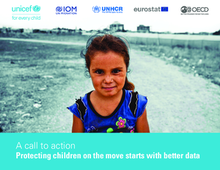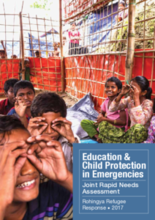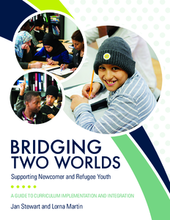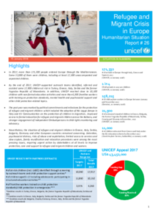Displaying 521 - 530 of 839
This paper from the Human Resource Management Review provides a typology that can be applied to the transnational family as a theoretical lens through which diverse forms of transnational families can be understood.
In this call to action, UNICEF, UNHCR, IOM, Eurostat and OECD show how crucial data are to understanding the patterns of global migration and developing policies to support vulnerable groups like children.
From ethnographic research with unaccompanied children in the United States and Guatemala, this paper explores emergent and, at times, conflicting narratives of care that young migrants encounter while in U.S. federal custody.
The main objective of this Joint Rapid Education and Child Protection Need Assessment (JRNA) was to identify education and child protection needs, priorities and capacities of Rohingya boys and girls in the camps, settlements and host community in Cox’s Bazar, Bangladesh to inform and provide the evidence-base for the 2018 Joint Response Plan (JRP).
Bridging Two Worlds provides teachers, school administrators and counsellors in Canada with the knowledge and practical resources to deliver more informed and culturally responsive career development and guidance to newcomer and refugee youth from Kindergarten to Grade 12.
This report from UNICEF provides an overview of the migrant and refugee crisis in Europe, including key highlights, statistics, and other data.
This paper examines the experiences of young people who seek formal humanitarian recognition yet avoid detention by government agencies while in transit from Central America, through Mexico.
As part of the "Children Come First: Intervention at the border" project, Save the Children Italy elaborates and disseminates, on a quarterly basis, a dossier containing quantitative and qualitative information (profiles) relating to migrant minors entering Italy. This dossier contains information relating to the last quarter of 2017.
This joint report by the Refugee Council and Oxfam is one of the first to look at how family reunion and ongoing forced separation from loved ones affect the ability of refugees to successfully integrate into UK society.
This report by the Child Rights International Network (CRIN) draws out the ways the Convention on the Rights of the Child (CRC) has been used around the world to challenge abuses of children’s rights, but also where it has been misunderstood and misapplied by national courts.







